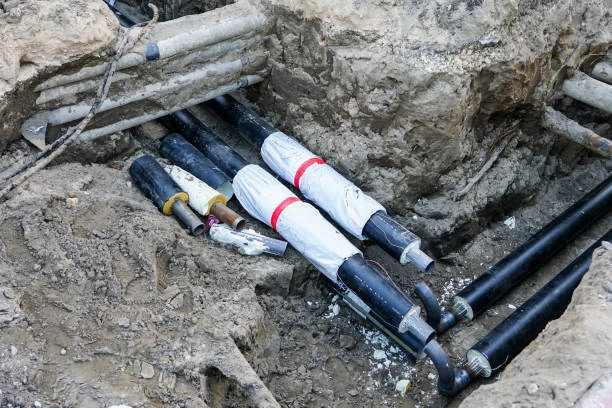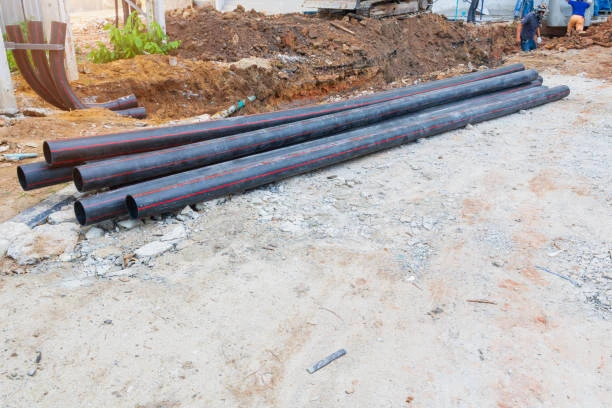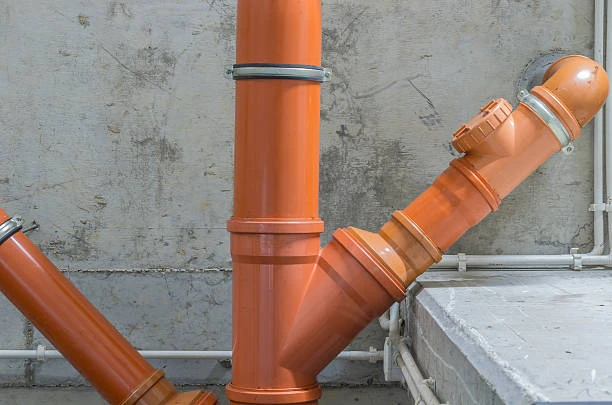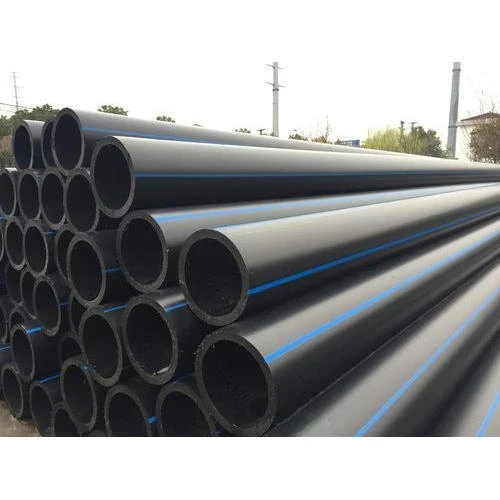Introduction
VC Garden in Mandaveli, a vibrant green space in Chennai, India, is embarking on an ambitious initiative to enhance its irrigation and drainage systems using high-density polyethylene HDPE pipe. This move is not only aimed at improving the garden’s sustainability but also reflects a broader trend in urban gardening where efficient water management is crucial. In this article, we will explore the significance of HDPE pipes in modern gardening, the specific benefits they offer to VC Garden, and the potential impact on urban landscapes in Chennai and beyond.

Understanding HDPE Pipe
High-density polyethylene (HDPE) pipes are synthetic tubes made from high-density polyethylene resin. Known for their strength, flexibility, and resistance to various environmental factors, HDPE pipes have become increasingly popular in various applications, including water distribution, sewage systems, and agricultural irrigation.
Key Properties of HDPE Pipe
- Durability: HDPE pipes can withstand harsh environmental conditions, making them ideal for outdoor applications.
- Chemical Resistance: These pipes resist corrosion and degradation from chemicals, ensuring longevity in various settings.
- Lightweight and Flexible: Their lightweight nature simplifies transportation and installation, while flexibility allows for easy maneuvering around obstacles.
- Cost-Effectiveness: HDPE pipes require minimal maintenance and have a long lifespan, which translates to long-term savings for users.
The Importance of Efficient Irrigation in Urban Gardens
Urban gardening presents unique challenges, including limited space and water availability. Efficient irrigation systems are vital for maintaining healthy plant growth, especially in gardens like VC Garden. The following points highlight the significance of using HDPE pipes in irrigation systems:
1. Water Conservation
HDPE pipes facilitate efficient water delivery, reducing wastage through leaks or evaporation. This is particularly crucial in urban areas where water scarcity is often a concern. By optimizing water usage, VC Garden can contribute to sustainable gardening practices.
2. Improved Soil Health
Effective irrigation helps maintain consistent soil moisture levels, promoting healthy root development. HDPE pipes ensure that water reaches the plant roots evenly, preventing issues such as overwatering or underwatering.
3. Reduced Labor Costs
Installing a reliable irrigation system using HDPE pipes can reduce the need for manual watering. This not only saves time but also allows gardeners to focus on other important tasks, enhancing overall productivity.
4. Scalability
As VC Garden continues to expand and develop, the flexibility of HDPE pipes allows for easy scalability of the irrigation system. New sections can be added without significant disruption, making it an ideal choice for growing gardens.
Implementing HDPE Pipes in VC Garden
The introduction of HDPE pipes at VC Garden involves several key steps, each essential for ensuring the success of the irrigation project.
1. Planning and Design
Before installation, careful planning is necessary to design an effective irrigation system. This includes:
- Assessing Water Requirements: Understanding the water needs of different plants to optimize irrigation schedules.
- Mapping the Garden Layout: Designing a layout that accommodates all plants while ensuring efficient water distribution.
2. Selecting the Right HDPE Pipe
Choosing the appropriate diameter and thickness of HDPE pipes is critical. Factors to consider include:
- Flow Rate: Determining the required flow rate for adequate irrigation.
- Pressure Ratings: Ensuring that the selected pipes can withstand the pressure of the water supply.
3. Installation Process
The installation of HDPE pipes involves several steps:
- Trenching: Digging trenches to lay the pipes at the correct depth, ensuring proper water flow.
- Joining Techniques: Using techniques such as heat fusion or mechanical fittings to connect pipe segments securely.
- Testing the System: Conducting tests to check for leaks and ensure that the system operates as intended.
4. Maintenance and Monitoring
Once the irrigation system is operational, regular maintenance is essential. This includes:
- Checking for Blockages: Regularly inspecting pipes for clogs that may impede water flow.
- Monitoring Water Pressure: Ensuring that the system maintains optimal pressure for efficient irrigation.
The Broader Impact of HDPE Pipe on Urban Gardening
The use of HDPE pipes in VC Garden reflects a growing trend in urban gardening. As cities become more densely populated, the need for sustainable green spaces increases. HDPE pipes can play a crucial role in this transition:
1. Promoting Urban Biodiversity
Efficient irrigation systems can support diverse plant species, promoting biodiversity in urban settings. By enhancing the health of urban gardens, HDPE pipes contribute to the overall ecological balance.
2. Enhancing Aesthetic Appeal
Well-maintained gardens not only provide recreational spaces but also enhance the aesthetic appeal of urban areas. The use of efficient irrigation systems helps maintain vibrant landscapes.
3. Community Engagement
Urban gardens serve as communal spaces where residents can engage in gardening activities. By investing in sustainable practices like HDPE irrigation systems, community members can foster a sense of responsibility toward their environment.
4. Educational Opportunities
Gardens like VC Garden can serve as educational platforms, teaching visitors about sustainable gardening practices. Highlighting the use of HDPE pipes can raise awareness about the importance of efficient water management.
Challenges and Considerations
While the benefits of using HDPE pipes in gardening are substantial, there are challenges that need to be addressed:
1. Initial Investment
The upfront costs of installing an HDPE pipe irrigation system may be higher compared to traditional methods. However, the long-term savings in water usage and maintenance can offset these costs.
2. HDPE pipe Technical Expertise
Successful installation and maintenance require technical knowledge. Hiring skilled professionals for the installation process can help mitigate potential issues.
3. HDPE pipe Climate Considerations
Different climates may affect the performance of HDPE pipes. It’s essential to consider local weather patterns when designing the irrigation system to ensure optimal functionality.
Future Trends in Urban Gardening and HDPE Pipe Usage
As urban gardening continues to evolve, several trends are likely to shape the future of HDPE pipe usage:
1. HDPE pipe Increased Automation
The integration of smart technology into irrigation systems will allow for automated watering schedules, optimizing water usage based on real-time weather conditions.
2. HDPE pipe Sustainable Materials
The shift towards sustainable materials in gardening will encourage more gardens to adopt HDPE pipes, reinforcing the commitment to eco-friendly practices.
3. HDPE pipe Community-Based Initiatives
Local governments and organizations may increasingly support community gardening projects that incorporate innovative irrigation solutions, creating green spaces that benefit all residents.
4. HDPE pipe Education and Awareness
Raising awareness about the advantages of using HDPE pipes in gardening will encourage more gardeners to adopt sustainable practices, contributing to healthier urban environments.
Conclusion
VC Garden in Mandaveli’s decision to implement HDPE pipe culverts for its irrigation system represents a significant step toward sustainable urban gardening. By enhancing water management, reducing labor costs, and promoting biodiversity, HDPE pipes play a crucial role in the garden’s success. As cities like Chennai continue to grow, the lessons learned from VC Garden can inspire similar initiatives, fostering a greener and more sustainable urban landscape.
FAQs
1. What are HDPE pipes used for in gardening?
HDPE pipes are primarily used for irrigation systems, facilitating efficient water delivery and drainage in gardens.
2. Why are HDPE pipes preferred over traditional materials?
HDPE pipes are durable, lightweight, resistant to corrosion, and cost-effective, making them ideal for outdoor applications.
3. How can HDPE pipes contribute to sustainability in gardening?
HDPE pipes help conserve water, reduce maintenance costs, and are recyclable, supporting eco-friendly practices.
4. What challenges might arise from using HDPE pipes in gardens?
Challenges include initial installation costs, the need for technical expertise, and climate considerations.
5. What future trends may impact HDPE pipe usage in urban gardening?
Future trends include increased automation, the use of sustainable materials, community-based initiatives, and enhanced education about sustainable practices.


















